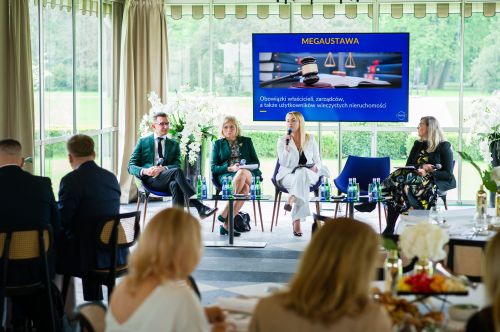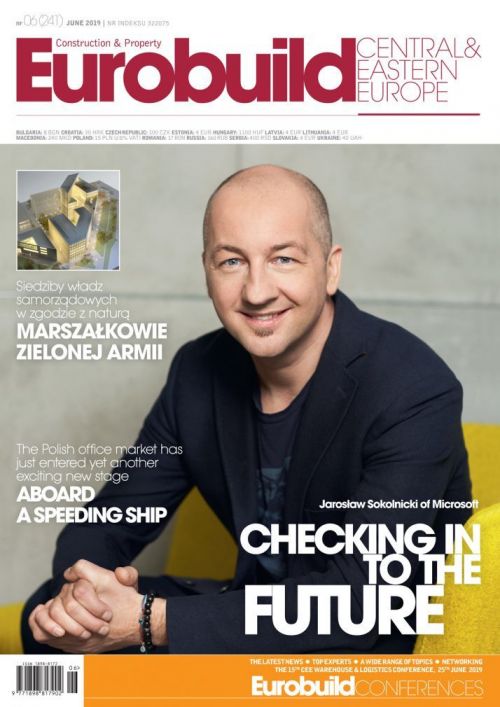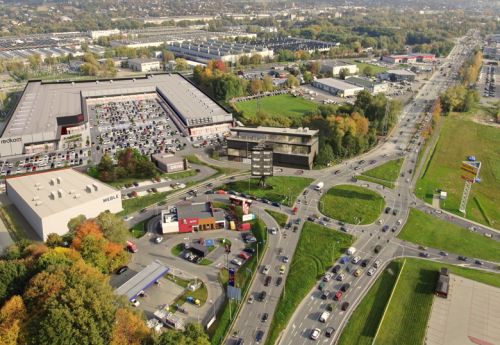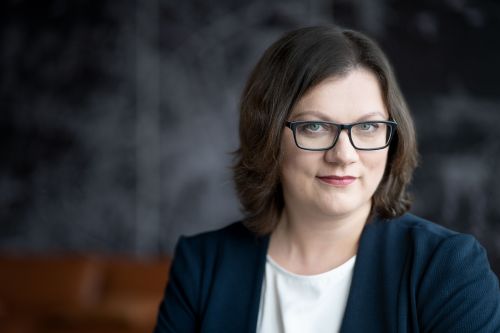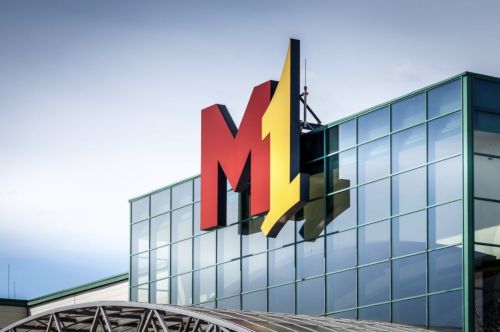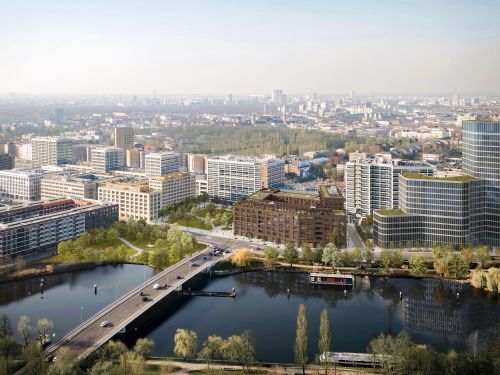Hotelling it as it is
EventsThose who came to the conference had a good opportunity to view the elegant interiors of the brand new Moxy Warsaw Prague hotel within the grounds of the former Koneser vodka distillery in the city’s Praga Północ district. This is a wonderful example of the renovation of a former factory – and, in fact, the first panel discussion focused on the advantages and challenges that come with developing such ‘hotels with a soul’. Janusz Owsiany, the CEO of Stowarzyszenie Monopol Warszawski, compared developing such a hotel to a show, in which each of the details, such as the history, the buildings, the neighbourhood and the cuisine it offers, all play a crucial role. “One important element is that all this local atmosphere, which is always a feature of a Moxy hotel, was already here inside the perimeter walls. We didn’t need to add much to create the feeling we were looking for,” explained Krzysztof Tyszkiewicz, a board member of BBI Development, the co-developer of Koneser.
Markus Lehnert, vice-president of international hotel development at Marriott International, also stressed that it was important for the investor to have a vision for a project. “You could see from the very outset that this location was going to be very diverse, in that it would have a museum, a conference centre, a retail area and offices – and also that there was this vision of what could be done without destroying what was already there,” he claimed.
Almost everyone raised their hands when the conference moderator, Alex Kloszewski of Hotel Professionals, asked who had stayed in Airbnb-type lodgings at least once. The second discussion was focused on assessing the risks and defining the challenges that the hotel sector now has to face from new business models, such as Airbnb, short term rentals, aparthotels and condos. “According to the statistics, Warsaw has more than 5,000 apartments ready for short term rentals. Last year the occupancy was at 70 pct and the average room rate was PLN 200. So we do have to treat it as a rival to our hotels,” admitted Jacek Stasikowski, the development director of Poland AccorHotels and Orbis. Jakub Ryznar, the head of hotel solutions for Poland, Russia and CIS at HRS Group, asked a slightly different question – if anyone had ever used Airbnb for business travel. This time not a single hand went up – an indication that Airbnb isn’t really having an impact on hotels that cater for corporate business. “Even though Airbnb in recent months has been making efforts to reach out to corporate customers and is now available on most of the online booking engines for corporates, it is still being treated as alternative accommodation where there are no traditional hotels, or for longer stays where having a bigger apartment might be a good alternative,” argued Jakub Ryznar.
Alex Kloszewski then asked if it was possible to assess the impact of Airbnb on hotel occupancy. “Let’s say we have 150,000 rooms in Poland and across the country our occupancy is 67–70 pct. What would be the occupancy with the same amount of rooms if Airbnb didn’t exist?” “The difference would be minor,” answered Jacek Tokarski. “In cities I believe that the difference would be a maximum of 2 pct. However, in resort locations the difference would be bigger, for sure. In some locations it might even amount to as much as 50 pct,” he added.
The final discussion was about rising costs and recruitment issues. As many as 44 pct of workers in the hotel sector in Poland would consider changing jobs within a year, revealed Marcin Walkowiak of Hotelcareer. The problems of recruitment and employee turnover in the industry was the central topic discussed by the third panel. The number of hotel professionals who now have itchy feet shows that the labour market has become a source of concern for the hotel sector. But it’s worse abroad, where as many as 65 pct of those surveyed by Hotelcareer would be happy to find a new job within the year and as many as 37 pct are prepared to change jobs in the next few months, explained Marcin Walkowiak.
Robert Grader, the general manager of the Warsaw Marriott Hotel, pointed out that the new rooms in the pipeline and especially in Warsaw (where 3,600 are to be added to the market in the next 16 months alone) are set to exacerbate the situation. “I still believe – and correct me if I’m wrong – that it’s still a kind of oasis here. For example, we have an open position in one of our sister hotels and we’ve now received 25 CVs, but then when I talk to my neighbour in Germany who has an open position, it turns out they’ve had zero CVs coming in. So that’s why they consider our market a kind of paradise,” he said.
Marek Przeorski, the general manager of DoubleTree by Hilton & Hampton Kraków, stressed how important it is to properly train employees to retain their loyalty. “You also have to provide them with benefits, which we weren’t prepared to give them some time ago, such as private health insurance,” he said. As a result, the cost of hiring new personnel and keeping them continues to rise. Today it would be impossible to run a hotel of a contemporary standard without recruiting from abroad. “I would like to see Poland become more global. I’d like to have employees not only from Belarus and Ukraine, who I already have many of, but also from the Philippines and Thailand,” remarked Marek Przeorski.
Those who stayed until the end could sample the selection of fine cheese and wine – and take a closer look around the Moxy and the Polish Vodka Museum with the guided tour provided by the organisers.












